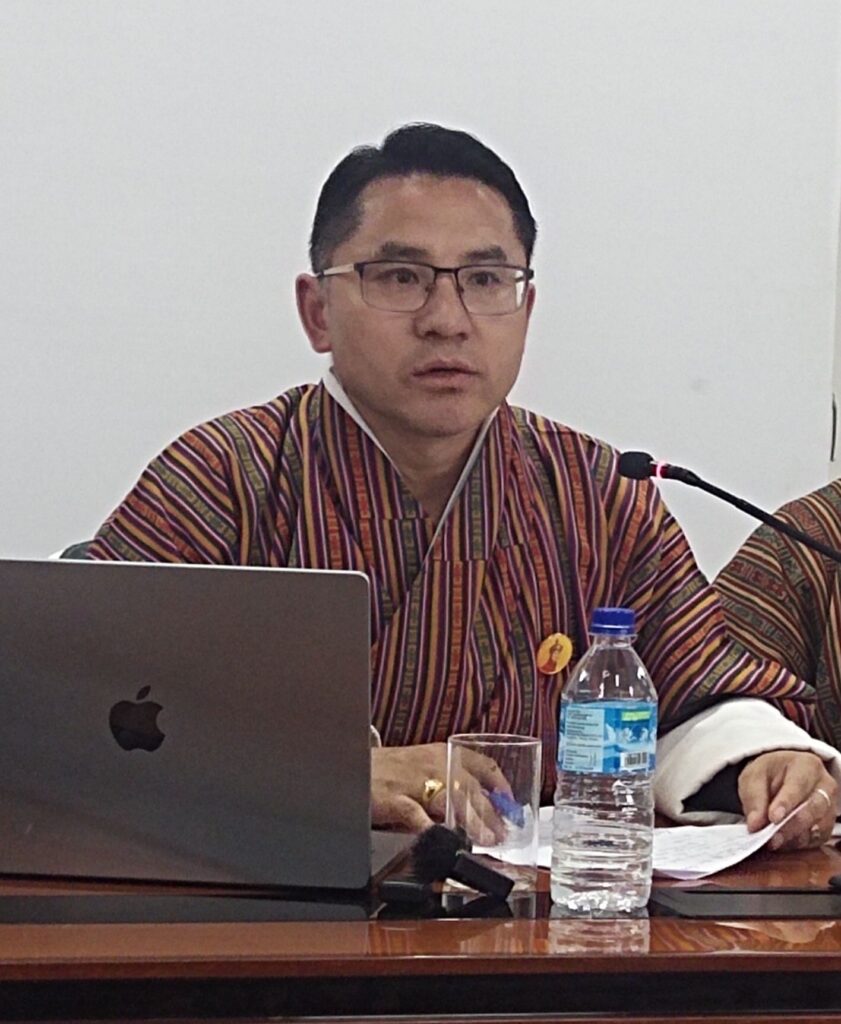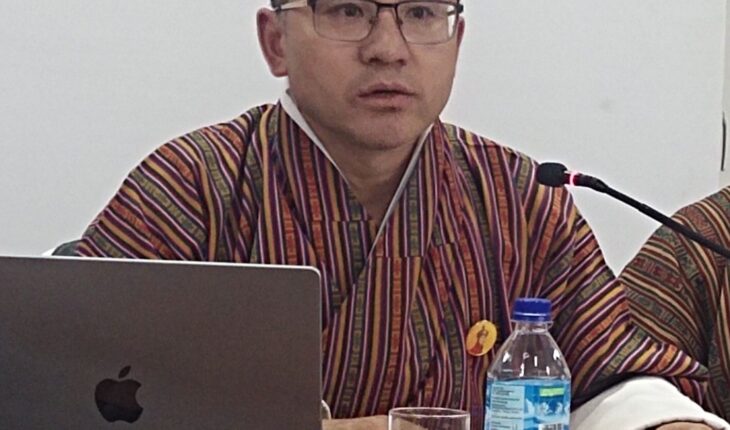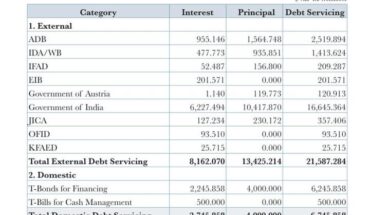
NGAWANG JAMPHEL
Thimphu
Agriculture, the backbone of the country’s economy, is not an impossible path for people with disabilities—it is an opportunity by choice.
At the forefront of this movement is 28-year-old Nauraj Rai, a person with blindness from Samtse Dzongkhag, who joined the Food and Agriculture Organization (FAO) of the United Nations in Bhutan as a Program Assistant for Inclusion in the Agriculture Sector earlier this year.
Since January 2025, Nauraj has been spearheading efforts to make agriculture more inclusive, emphasizing that farming should not be defined by physical capability, but by choice and opportunity.
His work focuses primarily on collecting data to understand how many persons with disabilities are already engaged in agriculture and what support they require to thrive. While nearly half of Bhutan’s population is employed in agriculture, there is still no concrete data on the number of PWDs in the sector—a gap Nauraj is determined to close.
“These stories show that with the right opportunities and minimal support, PWDs can sustain themselves and even flourish,” Nauraj said.
He shared the story of a woman from Lhuentse who is a person with deafness and earns her livelihood by weaving Kishuthara, a traditional textile requiring fine motor skills and patience. In Zhemgang, a man with low vision successfully cultivates oranges and has ambitions to expand into cardamom farming, provided he receives the financial backing.
Nauraj’s journey also mirrors the broader structural challenges that PWDs face in Bhutan. He recalled having to rely on a driver to assist him in completing the written test for his job recruitment. “There was no system in place for people with blindness like me to do it independently,” he said.
Rather than being disheartened, this experience motivated him to advocate for meaningful, systemic reforms—going beyond policy language to practical, on-ground inclusion.
One of his main recommendations is integrating agriculture into the curriculum of institutions that support PWDs.
“It doesn’t necessarily have to be a main subject, but it could be a co-curricular activity or a club,” he suggested.
According to him, early exposure fosters confidence and skills while countering the misconception that agriculture is too physically demanding for individuals with disabilities.
In addition, he advocates for targeted support for PWDs already involved in agriculture to help them expand and sustain their operations. “It’s about providing that little push—whether it’s tools, training, or finance,” he said.
His vision resonates with many Bhutanese who believe inclusive farming is both possible and necessary.
Gangla, a farmer from Darla gewog in Chhukha Dzongkhag, emphasized that farming methods can be adapted: “Farming doesn’t need to be the same for everyone. If we can make small changes to the way work is done, I think more people with disabilities can join us in the fields.”
Karma Dorji, a vegetable vendor in Thimphu, shared his personal observation: “I’ve seen a young man who is person with blindness selling his produce at the market. He’s doing well, and customers like him. We need more support for people like him.”
Meanwhile, Tshering Wangmo, a teacher in Trashigang, stressed the importance of early empowerment: “If children with disabilities are taught farming skills early on, they’ll grow up knowing they can be independent. It’s not about charity—it’s about empowerment.”
These individual stories and community sentiments are finding support at the policy level. Speaking at the 17th ‘Meet the Press’ session, the Minister for Agriculture and Livestock emphasized that Bhutan’s agriculture policies are built on the principles of inclusivity aligned with Gross National Happiness (GNH) and the Sustainable Development Goals (SDGs).
“The primary mandate of the Ministry is to enhance food and nutrition security of the country. But in that process, we also create opportunities for all—including persons with disabilities,” the Minister said.
The Food and Nutrition Security Policy of Bhutan 2023 specifically highlights gender equality and social inclusion as vital to building resilient agri-food systems. Strategic Priority Intervention 10 under this policy calls for the active participation of women and socially disadvantaged groups, including PWDs, in agricultural production and in the leadership of farmer groups and cooperatives.
To support inclusive farming, the Ministry of Agriculture and Livestock has introduced a range of adaptive technologies and targeted programs aimed at empowering persons with disabilities (PWDs) in the agriculture sector.
Mechanization, semi-automated greenhouses, and drip irrigation systems are being promoted to reduce the physical demands of farming, while high-value, low-labor crops are being introduced to better suit the needs of individuals with limited mobility or strength.
Additionally, capacity-building initiatives are being implemented to equip PWDs with essential skills, knowledge, and confidence, enabling them to participate meaningfully and independently in agriculture-related activities.
One example is the Commercial Agriculture and Resilient Livelihoods Enhancement Programme (CARLEP), which recently distributed mini power tillers across six eastern Dzongkhags. Priority was given to households with PWDs and women farmers, easing their labor burden and enhancing productivity.
Another innovative initiative, in collaboration with FAO, is the Technical Cooperation Project at Changangkha Middle Secondary School. Students with Special Education Needs (SEN) are being trained in mushroom cultivation, including bed-log preparation and production management. Parents of SEN students are also being trained to carry out mushroom farming at home, creating inclusive income-generating activities at the household level.
Despite these positive developments, officials acknowledge that Bhutan’s geographical and environmental challenges pose limitations to universal inclusivity in agriculture. Much of the country’s arable land is located on steep terrain, making mechanization difficult and physical labor almost unavoidable in many cases.
Within this reality, the Minister of Agriculture and Livestock Yonten Phuntsho during t the meet the press session on 4 July stressed the importance of pragmatic and balanced approaches. “While we aim for greater inclusion, interventions must align with our core mandate—ensuring food and nutrition security for the country. So, while we promote disability-friendly farming, it must be realistic within the limits of our terrain and resources,” he said.
Still, the Ministry is optimistic that smart farming technologies—such as drone-based applications, automated irrigation, and sensor-enabled greenhouses—could help overcome some of these constraints. These technologies are currently being tested and gradually introduced in pilot programs, with the hope of wider implementation in the future.
Nauraj Rai and his colleagues at FAO Bhutan believe that policy must be grounded in real stories and hard data. Through his work, he is ensuring that people with disabilities are no longer overlooked in national discussions on agriculture.
“Inclusion is not just about what’s written in reports—it’s about changing lives in the fields and beyond,” Nauraj said.





